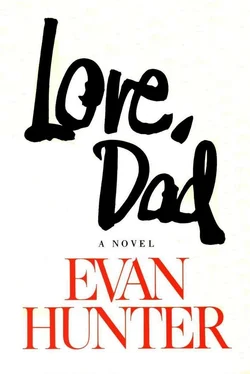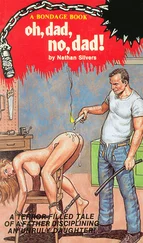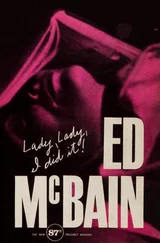“Okay, fine. Give me half an hour or so.”
“Jamie... what are we going to do?”
“I don’t know,” he said. “Let’s hope...” He let the sentence trail.
“I’ll call you back,” she said.
“Yes, okay. Half an hour,” he said, and hung up.
“What is it?” Joanna asked.
“My daughter wasn’t on the plane,” he said, jiggling the receiver rest. “Come on,” he said impatiently.
When the telephone operator came on the line, he told her he needed information for White Plains, New York. She told him he could dial that directly, first a one, and then the area code, and then 555 and then — “All right, thanks,” he said abruptly. When he got the information operator, he asked for the number of Andrews Travel in White Plains, and then hastily dialed it. Lionel Andrews himself answered the phone.
Jamie filled him in on what had happened, and Andrews promised to get back to him as soon as he had checked. He did not call back until fifteen minutes later, when he informed Jamie that his daughter’s ticket had been exchanged in Venice for a “further transportation” ticket. Jamie wanted to know what that meant. Andrews explained that it meant further transportation in the amount of the face value of the ticket. “Further transportation to where?” Jamie asked. Andrews said he had no way of knowing that just yet, but he would continue checking. Maybe Alitalia would have some additional information. Or perhaps one of the other airlines—
“Yes, please keep after it,” Jamie said.
He said nothing to Joanna while he waited for Connie to call back. She called at a little past five. She told him Alitalia had checked their manifest, and no one named Melissa Croft had been aboard the airplane. They were now checking to see whether she had been on the connecting flight from Venice. If so, there was a chance she might have decided to stop over in Milan for a few days. Perhaps she was still on the way home, perhaps she—
“No,” Jamie said softly. “I don’t think so.”
Connie was silent for a long time. Then she said, “What now, Jamie?”
“I don’t know,” he said.
“When will you be home?”
“After the race tomorrow.”
“Be careful,” she said, and hung up.
Joanna didn’t know quite what was happening.
Jamie was there to cover the running of the ninety-sixth annual Derby, and so he took his obligatory shots of the blooming tulips at Churchill Downs, the families picnicking on the infield, the college students tossing footballs, the vendors selling mint juleps at a buck and a quarter a throw, the stylishly dressed men and women in the clubhouse, the bettors at the windows, the trainers and owners in the paddock area. He was wearing two cameras around his neck, both Nikons, one with a wide-angle lens and the other with a 200-millimeter. Each time he took a roll of film from a camera to replace it with a fresh one, he marked it with a piece of adhesive tape upon which he inked a number and then jotted into a small notebook the identical number and a few words describing what was on the exposed roll, “So I can later identify the pictures for captioning,” he explained to her.
Those were virtually the only words he’d said to her all day long; she might just as well have been back in New York, sitting alone in her apartment. She had made a two-dollar win bet on one of the losers. She tore up her ticket as Jamie took a picture of the victorious jockey holding up his left hand in a V for Victory sign. He took a picture of the winner’s trainer, and yet another — a mood shot — of a balding old man staring disconsolately out at the trampled track, clutching a pair of losing tickets in his fist. Joanna kept wishing he would take a picture of her. Joanna kept wishing he would in some way indicate he was aware of her presence, squeeze her hand or throw her a smile, something, anything. But he went about his work methodically and efficiently (if a bit bloodlessly, she thought) and seemed glad when it was all over.
“I want to get back home,” he said, and she felt her first sense of foreboding, a sudden, secret terror that she was about to lose him. This was the first day of May. They had made love for the first time nine months ago, and now, for reasons she could not fathom, he seemed ready to vanish into that great beyond that swallowed married men once they felt they’d had enough and were in imminent danger of threatening the blissful, loveless arrangements they shared with their wives.
They were in the room packing when at last she said, “What is it, Jamie? What have I suddenly contracted? Halitosis? Leprosy? What?”
He looked up from his valise. He seemed on the edge of tears.
“I’m sorry,” he said.
“You’ve hardly said a word to me all day.”
“I’m sorry. Really.”
“I know you’re upset about your daughter,” she said, “but I’m not aware that I did anything or said anything to turn you off this way. If there is something, I wish you’d...”
“I shouldn’t have come here,” he said.
“What do you mean?”
“I should’ve been at the airport to meet her.”
“Well... what difference would that have made? If she wasn’t on the plane...”
“She’d have been on the plane.”
“Come on, Jamie. You surely don’t believe...?”
“I should’ve been there, that’s all.”
“But how would that have changed anything? And anyway, forgive me, Jamie, but what have I got to do with your daughter’s whereabouts? What possible connection...?”
“Joanna... please. I’d rather not talk about it. Really.”
“Well, I would , damn it! She decides not to come home, and suddenly I’m the one getting punished. What kind of crazy compensatory substitution...?”
“You sound like Mandelbaum,” Jamie said.
“And you sound like—”
She cut herself short.
She shook her head.
“Jamie,” she said, “let’s not do this to each other, please.”
“Right, let’s not,” he said. “I certainly don’t want to end it with—”
“End it?” she said.
“The trip, I mean.”
She was staring at him now, a stunned look on her face.
“Let’s finish packing,” he said.
On the plane back to New York, he busied himself first with sorting out his little containers of exposed film and checking the numbers on them against the shabby little notebook he kept in the inside pocket of his jacket, next with reading Time magazine from cover to cover and pointing out in a friendly stranger-on-a-plane way the work of various photographers he knew, and then paying excessive gourmand attention to the virtually inedible “snack” the airline served, and finally — she was sure — flirting with the flight attendant, a bosomy southern belle who looked more like an Eighth Avenue hooker than the real-life ones prancing that stretch of sordid turf.
In the taxi on the way back to the city, he commented on how good it was to be home again in the Big Apple, and then repeated to her a joke he told her he’d overheard at the track, something about a dog learning to talk, something about a dog getting shot, she really wasn’t following it, her mind was on the looming possibility that this might be the last time in her life she’d ever see him. When he finished the joke, she laughed politely.
She was certain that she herself had little or nothing to do with his decision to end the relationship. She was being evicted by a person she’d never met, an eighteen-year-old twerp “finding herself,” or whatever the fuck she was doing, someplace in Europe, a daughter who, by her irresponsible mindlessness, her adolescent inability to get her immature ass on a goddamn airplane, was somehow causing this. She wished she could explore this further with him, probe whatever promises he had made to himself or to God — “Bring my daughter home safely, and I’ll never, never fuck around again” — investigate the possibility that he was linking his daughter’s profligacy to his own, perhaps even accepting as his own the guilt that silly teenage twit should have been feeling. But the taxi meter was ticking, the watch on Joanna’s wrist was ticking, the minutes were flying past, the opportunities were vanishing second by second.
Читать дальше












